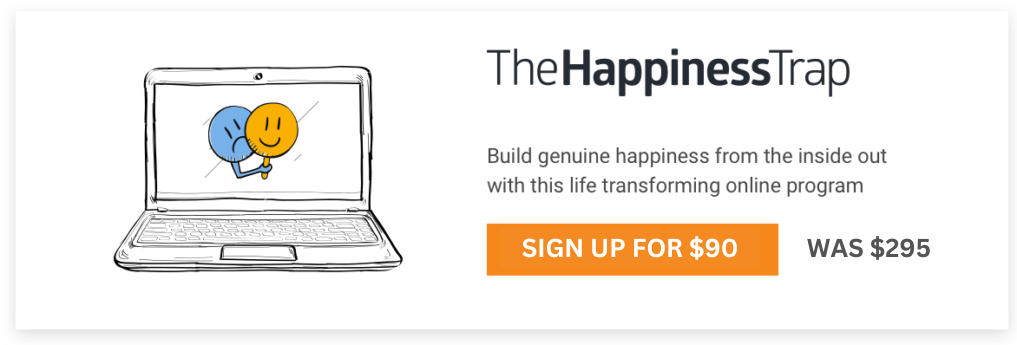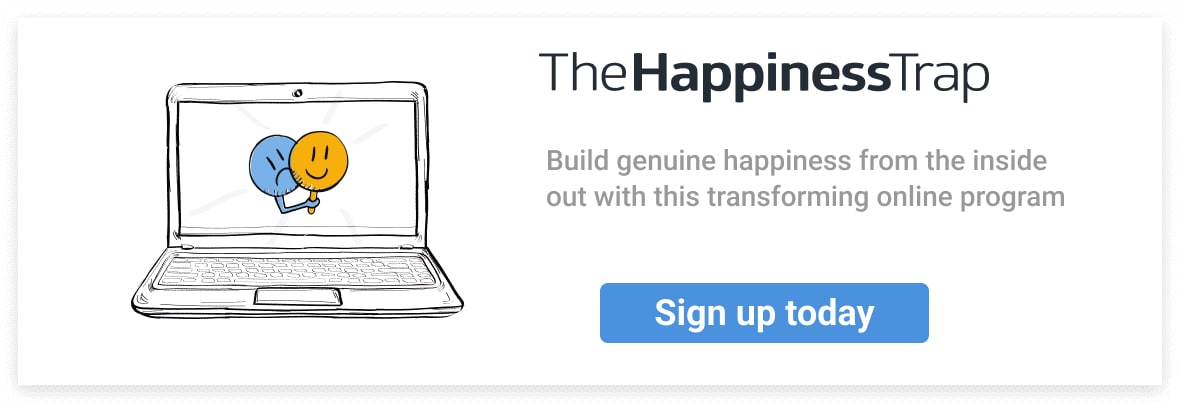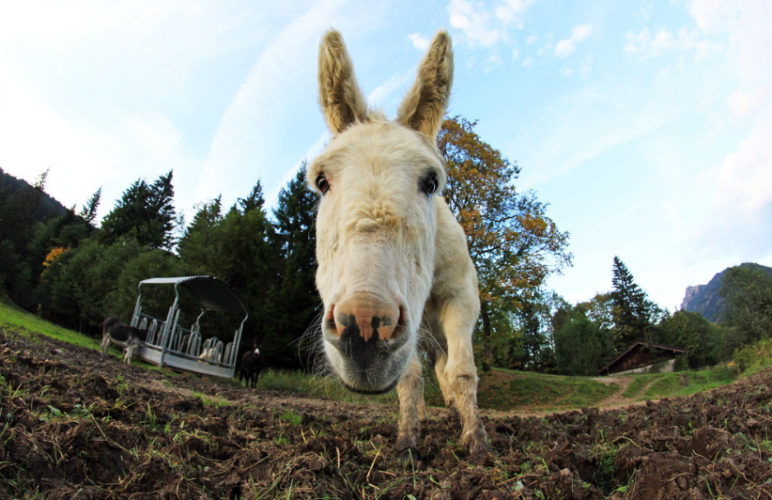Extract from the Happiness Trap, by Dr. Russ Harris
The human mind has given us an enormous advantage as a species. It enables us to make plans, invent things, coordinate actions, analyse problems, share knowledge, learn from our experiences and imagine new futures.
The clothes on your body, the shoes on your feet, the watch on your wrist, the chair beneath you, the roof over your head, the book in your hands — none of these things would exist but for the ingenuity of the human mind.
The mind enables us to shape the world around us and conform it to our wishes, to provide ourselves with warmth, shelter, food, water, protection, sanitation and medicine. Not surprisingly, this amazing ability to control our environment gives us high expectations of control in other arenas as well.
Now, in the material world, control strategies generally work well. If we don’t like something, we figure out how to avoid it or get rid of it, and then we do so. A wolf outside your door? Get rid of it! Throw rocks at it, or spears, or shoot it. Snow, rain or hail?
Well you can’t get rid of those things, but you can avoid them by hiding in a cave, or building a shelter. Dry, arid ground? You can get rid of it by irrigation and fertilisation, or you can avoid it by moving to a better location.
But what about our internal world? I’m talking here about thoughts, memories, emotions, urges, mental images and physical sensations. Can we simply avoid or get rid of the ones we don’t like?
In the outer world, we can do so fairly easily, so shouldn’t it be the same with our inner world? Here’s a little experiment. As you keep reading this paragraph, try not to think about ice cream. Don’t think about the colour or the texture or the taste of it. Don’t think about how it tastes on a hot summer’s day.
Don’t think about how good it feels as it melts inside your mouth. Don’t think about how you have to keep licking around the edges to stop it from dripping on your fingers.
How’d you do?
Exactly! You couldn’t stop thinking about ice cream. Here’s another little experiment. Recall something that happened in the past week. Any memory will do, whether it’s a conversation you had, a movie you watched or a meal you ate. Got one? Good.
Now try to get rid of it. Totally obliterate it from your memory so it can never come back to you, ever again. How did you go? If you think you succeeded, just check again and see if you can still remember it.
Now, tune in to your mouth. Notice how your tongue feels. Run it over your teeth, your gums, your cheeks and the roof of your mouth. Now try to get rid of those sensations. Try to turn your mouth totally numb, as if you just had a shot of novocaine from the dentist. Were you able to forget the sensations?
Now consider this hypothetical scenario for a moment. Suppose someone put a loaded gun to your head and told you that you must not feel afraid; that if you should feel even the slightest trace of anxiety, they will shoot you.
Could you stop yourself feeling anxious in this situation, even though your life depended on it?
(Sure you could try to act calm, but could you truly feel it?)
Okay, one last experiment. Stare at the star below then see if you can stop yourself from thinking for 60 seconds.

That’s all you have to do. For 60 seconds, prevent any thoughts whatsoever from coming into your mind — especially any thoughts about the star!
Hopefully by now you’re getting the point that thoughts, feelings, physical sensations and memories are just not that easy to control. It’s not that you have no control over these things; it’s just that you have much less control than you thought.
Let’s face it, if these things were that easy to control, wouldn’t we all just live in perpetual bliss? Of course, there are a few self-help gurus who claim to live in such a state all the time. Such people often get really rich, their books sell by the million and they attract huge followings of people desperate for ‘the answer’.
My guess is that many readers of this book will have already gone down that path and been sadly disappointed.





